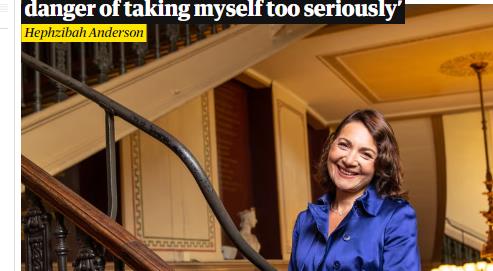
s soon as Nicholas Watt, the BBC Newsnight political editor, was identified by anti-lockdown protesters who had assembled in Westminster on Monday afternoon, he was chased and subjected to howling verbal abuse. As Watt ran, probably concerned about his safety, nearby police officers stood back, perhaps too busy enjoying the Mediterranean weather.
Watt’s treatment provoked justified outrage among his peers. “These sorts of encounters are becoming commonplace for reporters in #ageofrage,” was how Sky News’ presenter Adam Boulton put it. While he is right to be concerned, to contextualise the event as part of a generalised “age of rage” is misplaced. There is a difference between irritating online debate on all sides of the political spectrum, and physical harassment of journalists carried out by the far right.
Unfortunately, I can directly empathise with what Watt experienced, because I have seen it close up, over and over again. To break the fourth wall for a moment, I struggled with the question of whether it would be appropriate to write about my own encounters with far-right intimidation, but my editors felt it was important to put those incidents on the record – not least because this sort of physical threat to journalists tagged as “traitors” is not simply a post-Covid development. What we have seen in the streets in the past few years is a reminder of the direct link between online radicalisation, rhetoric from certain media outlets and violence toward journalists – and it is getting worse.
At the end of 2018, as I was being interviewed live on Sky News outside Parliament, a group of Tommy Robinson supporters wearing Maga caps, who had latched on to nearby leaver protests, shouted abuse at me during the broadcast, and then chased after me as I left the security cordon on College Green. Just like Watt’s pursuers, they cried “Traitor” as they followed me towards Millbank.
A few weeks later, the same thing happened again: I found myself among a crowd of far-right extremists screaming abuse in my face, photographers snapping the scene to sell on to press agencies, and police officers passively trailing at the back. The extremists livestreamed the event on their phones and encouraged their supporters to donate via PayPal. This was far-right entrepreneurialism, and I was a source of revenue.
An even trickier situation materialised days later when, at an anti-austerity demonstration in Trafalgar Square, hundreds of far-right extremists surrounded the stage screaming: “Jonesy is a bender!” Thanks to a protective circle of protest stewards I made it to my bike on the other side of the square, but not before several of them – their warm breath betraying their levels of intoxication – attempted to throw punches and spat on my face.
It would only escalate further: months later, I was attacked on my birthday by a far-right extremist who turned out to have a house full of Nazi and Combat 18 memorabilia. I’m not alone: one of those who targeted me on College Green had a restraining order imposed on him after harassing another journalist at the Independent.
In fact, many of the same far-right extremists who opportunistically latched on to Brexit have shifted their sights on to the measures taken to suppress the public health emergency. A quick glance through the Facebook profile of a man arrested after repeatedly screaming into Watt’s face yields predictable results: anti-vaxx and “Covid is a hoax” memes are posted side by side with QAnon conspiracies and denunciations of Greta Thunberg’s “communist agenda”.
What is the source of this radicalisation? Rampant misinformation online has rightly been identified as a problem as vulnerable people find themselves exposed to increasingly misleading content thanks to social media algorithms. In the case of Covid-19, online memes propose a vast conspiracy linking together western governments, deceitful scientists and journalists acting as their propagandists in order to strip citizens of their hard-won freedoms.
This extreme content draws focus in an economy in which attention is everything. This is an exchange that parts of the media have been more than happy to play a part in. Those who came between the right and their Brexit were denounced in headlines as “Enemies of the people” and “Saboteurs”, while those on the left were portrayed as Britain-hating extremists and terrorist allies. These lines of attack inevitably place targets on heads.
During the Covid crisis, various rightwing media outlets have platformed talking heads and discredited scientists who have propagated the idea that lockdowns are unnecessary measures, fuelling conspiratorial reasons behind their imposition. On the opening night of the new TV channel GB News, a flagship presenter engaged in an uninterrupted monologue against lockdowns: it is not simply dishonest memes on Facebook that fuel conspiratorial mindsets.
It’s five years since Jo Cox was murdered by a far-right terrorist, and yet that horror left no lasting mark on our political discourse, no soul searching about the sources of such extremism. Watt’s treatment should horrify and it should disgust – but if the assassination of a Labour MP did not provoke the long overdue national conversation about the radicalisation of far-right extremists, the harassment of a BBC journalist won’t either, and this country will descend into a much darker place.












